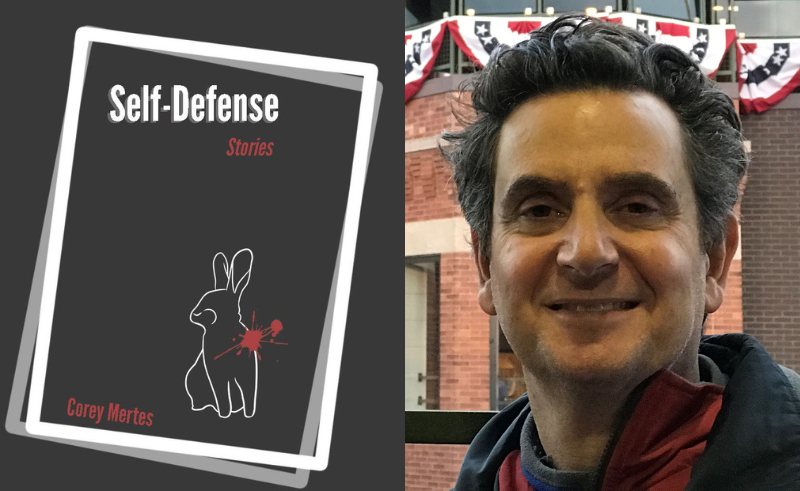Corey Mertes has worn a lot of hats throughout his career. He’s taught ballroom dance, worked at several casinos, attended the USC Film School and the University of Chicago, retired from practicing public law, and invested in Chartreuse Saloon.
Throughout these varied experiences, Mertes turned to writing stories. After publishing several short stories in literary journals, he noticed a theme. Now, Cornerstone Press has published his first book, Self-Defense, a collection of a dozen short stories about “mankind’s instincts for survival and the psychological defense mechanisms we develop against the obstacles and traumas that life puts in our path.” The book is currently available at Barnes & Noble on the Plaza.
We chatted with Mertes about his writing career and what he hopes readers take away from the short stories.
How long have you been writing?
I’ve been writing stories for years—just here and there and publishing them in literary journals as people do when they write stories. I have collected them, and I’ve never really finished what I would call a book. I stopped practicing law at the beginning of the pandemic and tried to devote myself to writing. It worked out well because a few months later, my book got published, and it’s been great so far. I’m 58 years old, and those first months of the pandemic were so awful for everybody, but particularly scary for people in my age group or older. You think about your mortality, and I thought about whether I really wanted to spend my remaining years as a lawyer, and I decided I didn’t—I didn’t dislike the work, I just decided I wanted to do what was more me, more consistent with who I am.
What makes writing more you? Tell me more about what inspired you to start writing and keep at it.
I’ve always been fascinated with individual characters. One thing that’s been consistent with me my entire adult life, is I spend time in bars or social settings just listening to people’s stories—that precedes any writing that I did. So at some point, I guess I wrote one or two stories when I was young, and maybe about 15 years ago, I started writing stories seriously. I decided out of all the stories I’m accumulating; I should make something out of it. I’ve met characters in the dance business and casino business that I thought were worthy stories. So, I started putting them down. Several of the stories in the book involve gamblers or drifters or ballroom dance people. I do use my experience—although it’s all fictionalized, they’re not real people, but they are based on my experiences.
You’ve mentioned a lot of your stories relate to the struggle of survival. Why do you think that’s a common theme?
I’ve just been through enough struggle and lived long enough that the struggle and reacting to conflict or trauma or challenges, difficulties, is a theme that persists in my life and everybody’s life. I’ve lived long enough that I’ve seen quite a bit, so that’s the theme: What we do to respond to what life throws at us. Some of these characters create their own problems. They’re not necessarily the most wonderful people in the world, but they’ve created their own issues, and now they’re trying to work their way out.
Out of the 12 stories in Self-Defense, are there any that you hold closer to your heart?
The first and last stories in the book have always held up for me. Rabbit, the first story, is not based on any kind of life experience, but it holds up over the years and still resonates. The same with the last story, Flood Plain, which more than any other story encapsulates the theme of survival. The last page of that story really sums up the theme of the whole book. The book is a little bit dark in general in that it contemplates death and what we do to postpone it, eliminate it from our minds, how to cope with it. But some of the stories are funny. They have funny moments—Flood Plain certainly has humor in it. There’s also Shih Tzu, which is a story that seems to be a favorite with many people, it has a theme that has to do with a midlife crisis.
What message do you want to leave with people who read the book?
They are not alone in their struggle. Everybody encounters extraordinary difficulties. If you read the entire book, I hope that you feel at the end that these people seem real to me and they’re going through extraordinary challenges just as I am. And that’s a good thing, because it’s only when you understand and really feel that others are in the same boat you are, that coping with your own problems becomes easier. It’s when we feel one with humanity that we can get through it. I hope the stories make us feel that.



